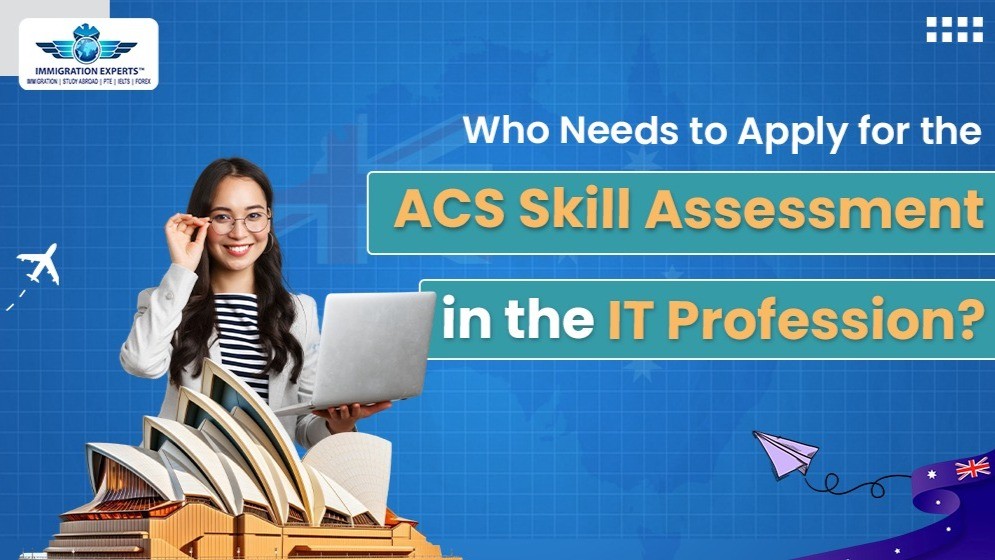
ACS Skill Assessment: Who Needs It in the IT Industry?
Australia remains a top choice for skilled IT professionals seeking better career prospects and an enhanced quality of life. To apply for General Skilled Migration (GSM) visas like Subclass 189, 190, or 491, professionals must first demonstrate their expertise in a nominated occupation.
For those in the IT sector, this involves undergoing a skills assessment by the Australian Computer Society (ACS)—the designated authority for ICT-related roles.
But who exactly needs to apply for the ACS Skills Assessment, and what are the key requirements? Let’s break it down.
What is the ACS Skills Assessment?
The ACS Skills Assessment is an official evaluation process where the Australian Computer Society reviews your academic qualifications and professional experience to verify if they meet Australian standards for your chosen ICT occupation on the Skilled Occupation List (SOL).
Common ICT roles assessed by ACS include:
- Software Engineer
- ICT Business Analyst
- Systems Analyst
- Network Engineer
- Developer Programmer
- Database Administrator
- ICT Security Specialist
- Web Developer
- Computer Network and Systems Engineer
- And more...
Who Needs to Apply for the ACS Skills Assessment?
If you’re in the IT field and planning to migrate to Australia on a skilled visa, you’ll likely need an ACS Skills Assessment in the following scenarios:
1. You Hold an IT Qualification and Relevant Experience
If you have a Bachelor’s degree or higher in ICT and at least 2 years of relevant work experience in the past 10 years, an ACS assessment is required to verify alignment with your nominated occupation.
2. You Have a Non-ICT Qualification but Work in IT
Even if your degree is not ICT-related (e.g., in Engineering or Business), you may still qualify if you have 4–6 years of relevant IT work experience. ACS will assess whether your experience sufficiently compensates for the unrelated degree.
3. You Lack a Recognized Degree but Have Long-Term IT Experience
If you don’t have formal qualifications, you may be eligible through the Recognition of Prior Learning (RPL) pathway. This requires at least 6 years of ICT work experience, along with detailed project reports to prove your skills. If the experience is not in a closely related field, a minimum of 8 years is needed.
4. You’re an International IT Graduate from Australia
If you completed an ICT qualification in Australia and are applying for PR, you must apply for a Post-Australian Study Assessment. You’ll need to show 1 year of relevant work experience or have completed a Professional Year Program in ICT.
5. You’re Claiming Points for Work or Study
Even if you meet the basic visa criteria, an ACS assessment is essential if you want to claim points for your qualifications or work experience (Australian or overseas) under the GSM points system.
6. You’re Applying Through a State Nomination Program
To qualify for nomination under Subclass 190 or 491, many states require a valid skills assessment. The ACS assessment helps you meet these requirements and boosts your competitiveness.
Key Documents for ACS Assessment
- Degree certificates and transcripts
- Employment references (on company letterhead)
- Resume/CV
- Passport bio page
- Payslips, tax documents, or work contracts
- RPL report (if applicable)
Processing Time and Fees
- Standard Processing: 8–10 weeks
- Priority Processing: ~15 working days
- Fee: $500 (standard); additional fees apply for priority or RPL assessments
Conclusion:
The ACS Skills Assessment is a vital step for IT professionals pursuing skilled migration to Australia. Whether you're a recent graduate, a seasoned developer, or a non-ICT degree holder with tech experience, a successful ACS outcome validates your credentials for Australian PR.
To ensure a smooth process and avoid unnecessary delays or errors, consider seeking expert advice. Immigration consultants can help you meet ACS requirements and improve your chances of a positive result.





